how to make a hard-boiled egg
At some point in my adulthood, I decided to lock down egg skills for a better life. Remember when I shared my new expertise, the over-easy egg? Suddenly, I was sliding over-easy eggs onto everything! However, the egg skill most needed in my work as a personal chef has been to master how to make a hard-boiled egg. Also, this cooked egg is actually the one I put on everything.
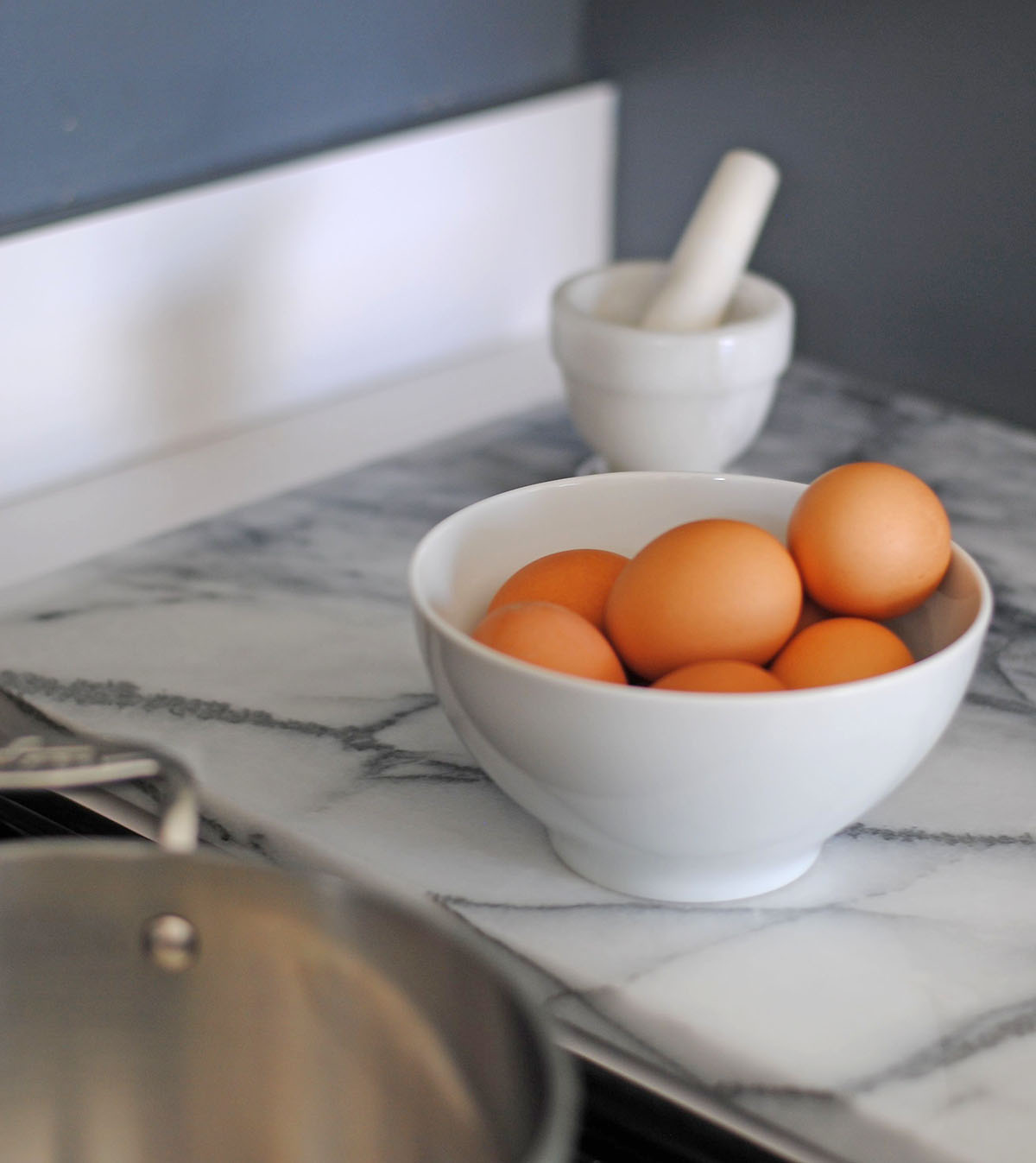
It’s easy to overcook hard-boiled eggs, resulting in dry yolks and rubbery whites. Isn’t that the way they are supposed to be? Good news, no they’re not.
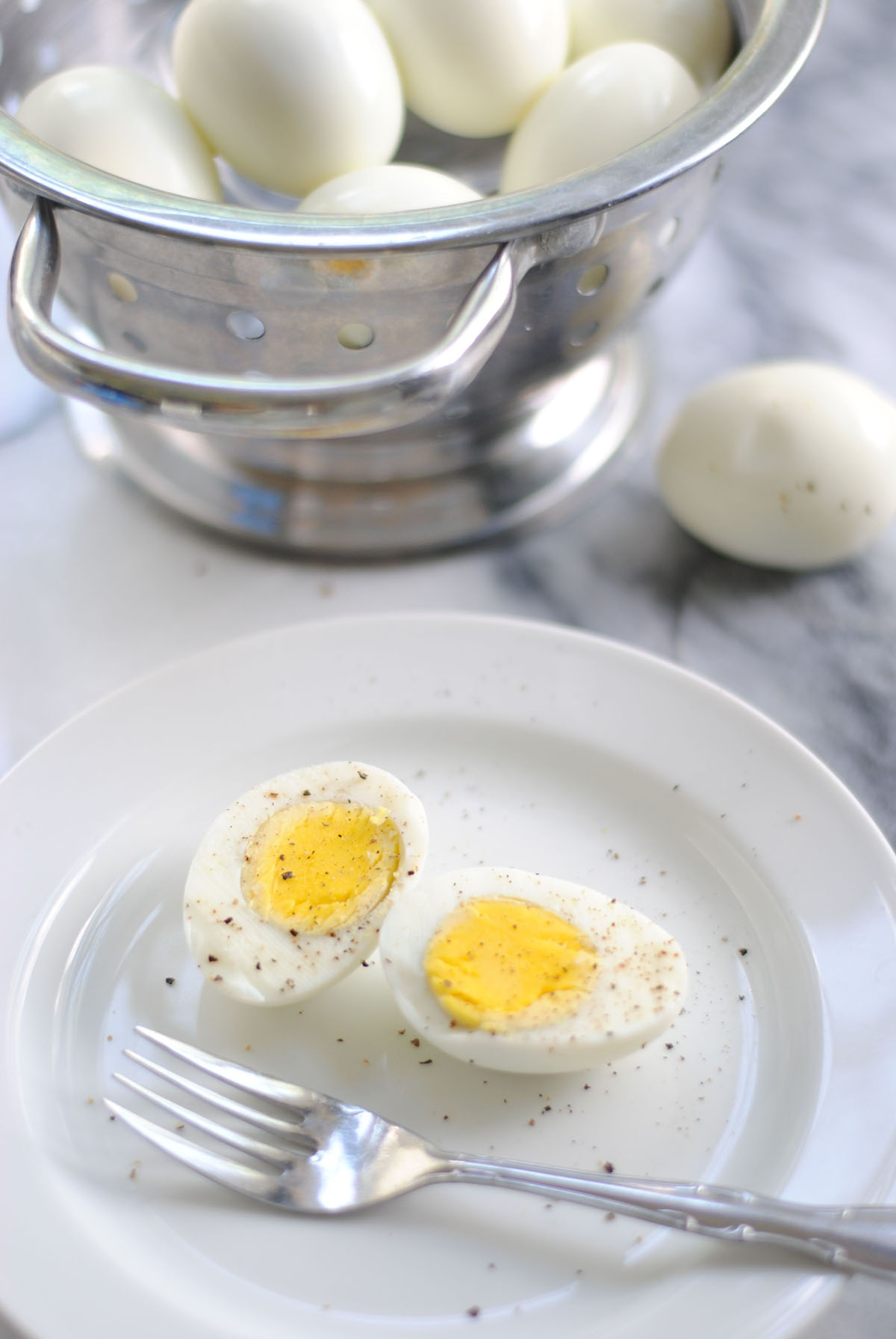
Likewise, I do not like green eggs (or ham). Ideally I want yolks to be barely hard and a lovely shade of yellow, especially if I am making something like potato salad or deviled eggs. Agreed?
Notably, I’ve tried the instant pot (my second favorite method), oven baking (as someone randomly suggested), and straight-up boiling on a burner. Altogether, none have been as consistent as my 14 + 2-minute hard-boiled egg method below. Keep reading for the specifics!
Six steps to pretty perfect hard-boiled eggs, every single time
First, gently place eggs in a pan and pour cold water on top, just until covered.
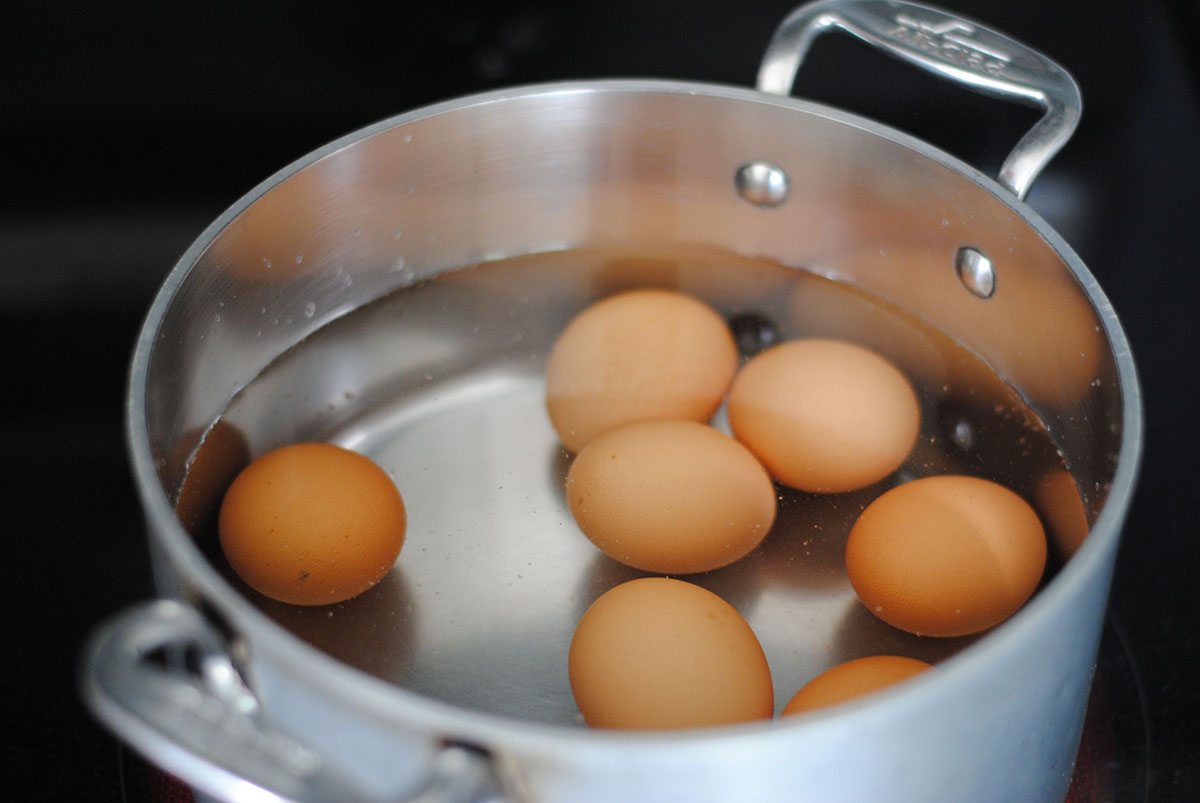
Second, turn the heat on high and bring water to a boil with the lid off.
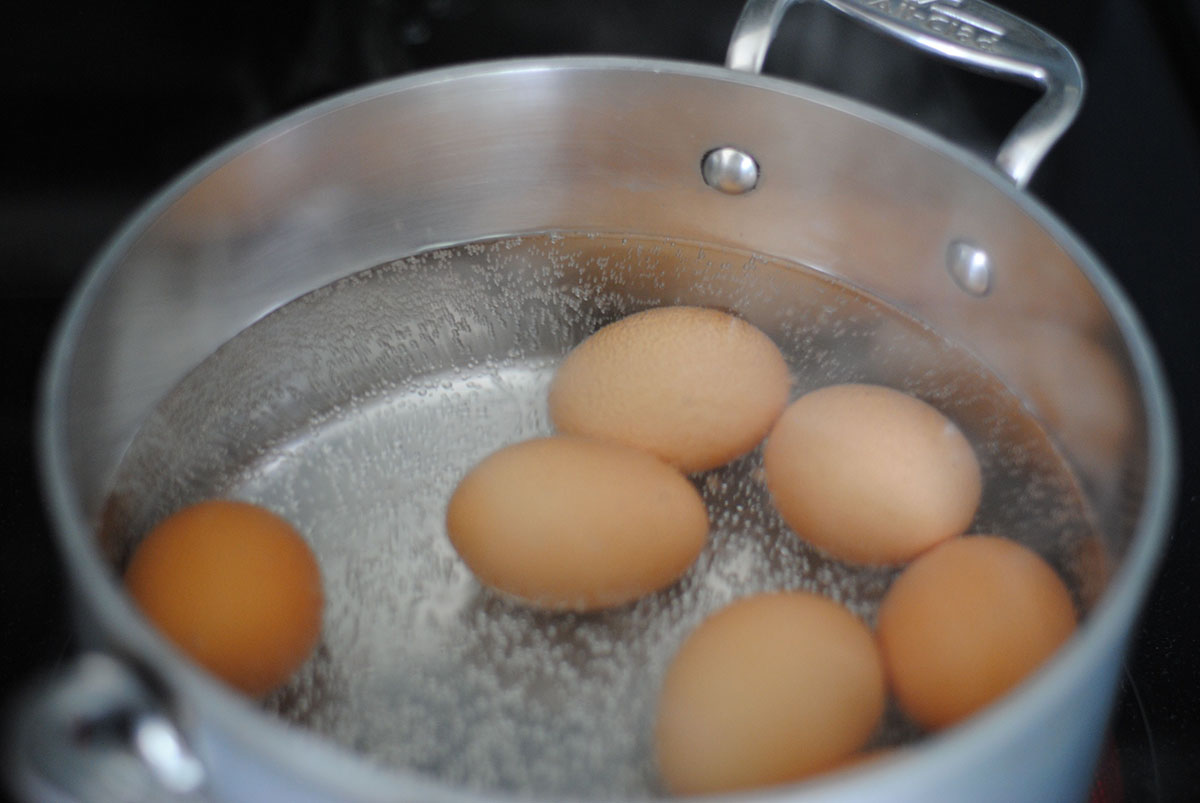
Third, as soon as the water starts to boil, cover the pot with a lid, turn off the heat, and leave it to sit on the warm burner. Set your timer for 14 minutes.
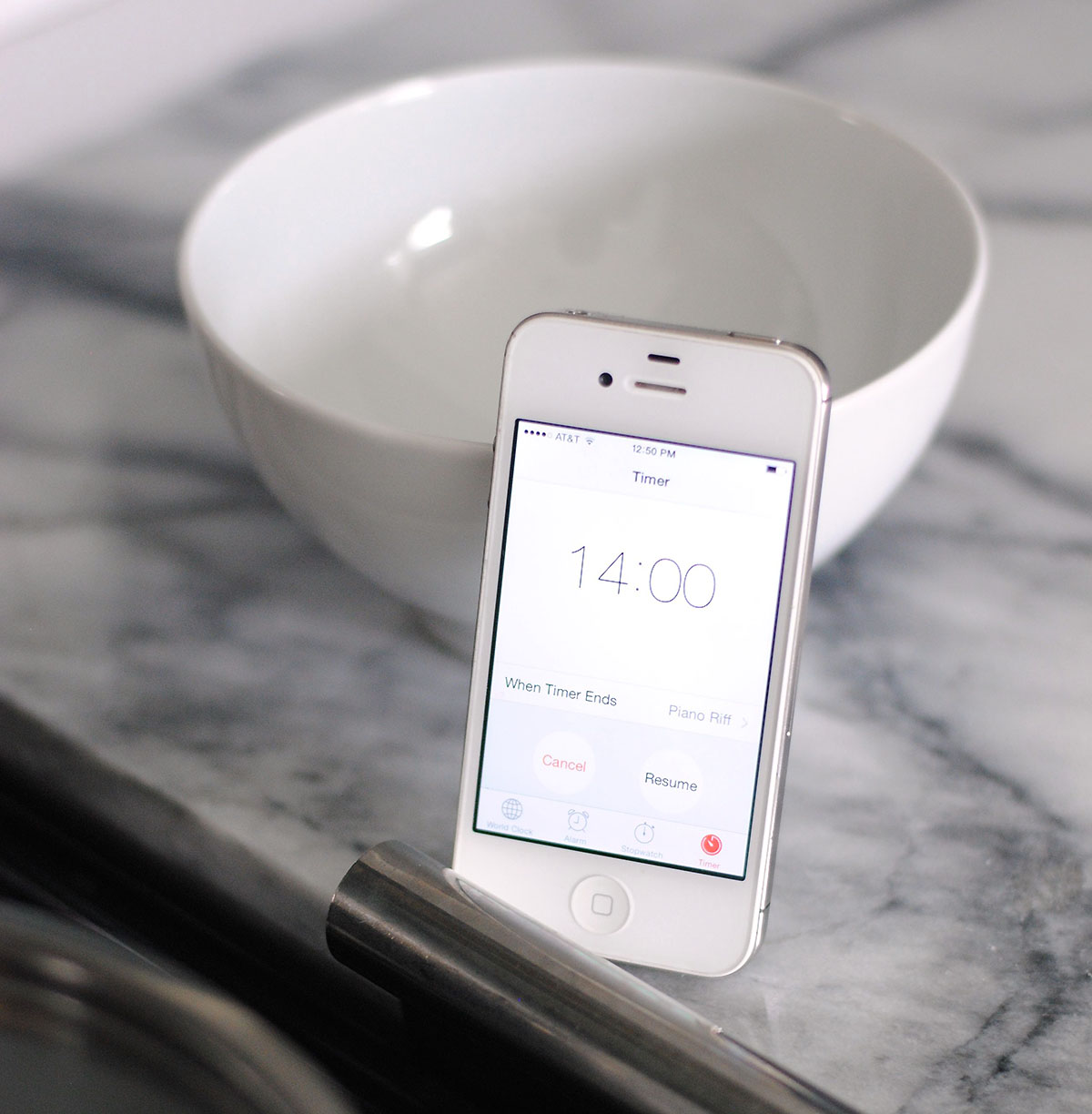
After the first timer goes off, drain the water and cover again with cold water, keeping the lid off. Set your timer for two minutes. This step cools the eggs down enough to touch.
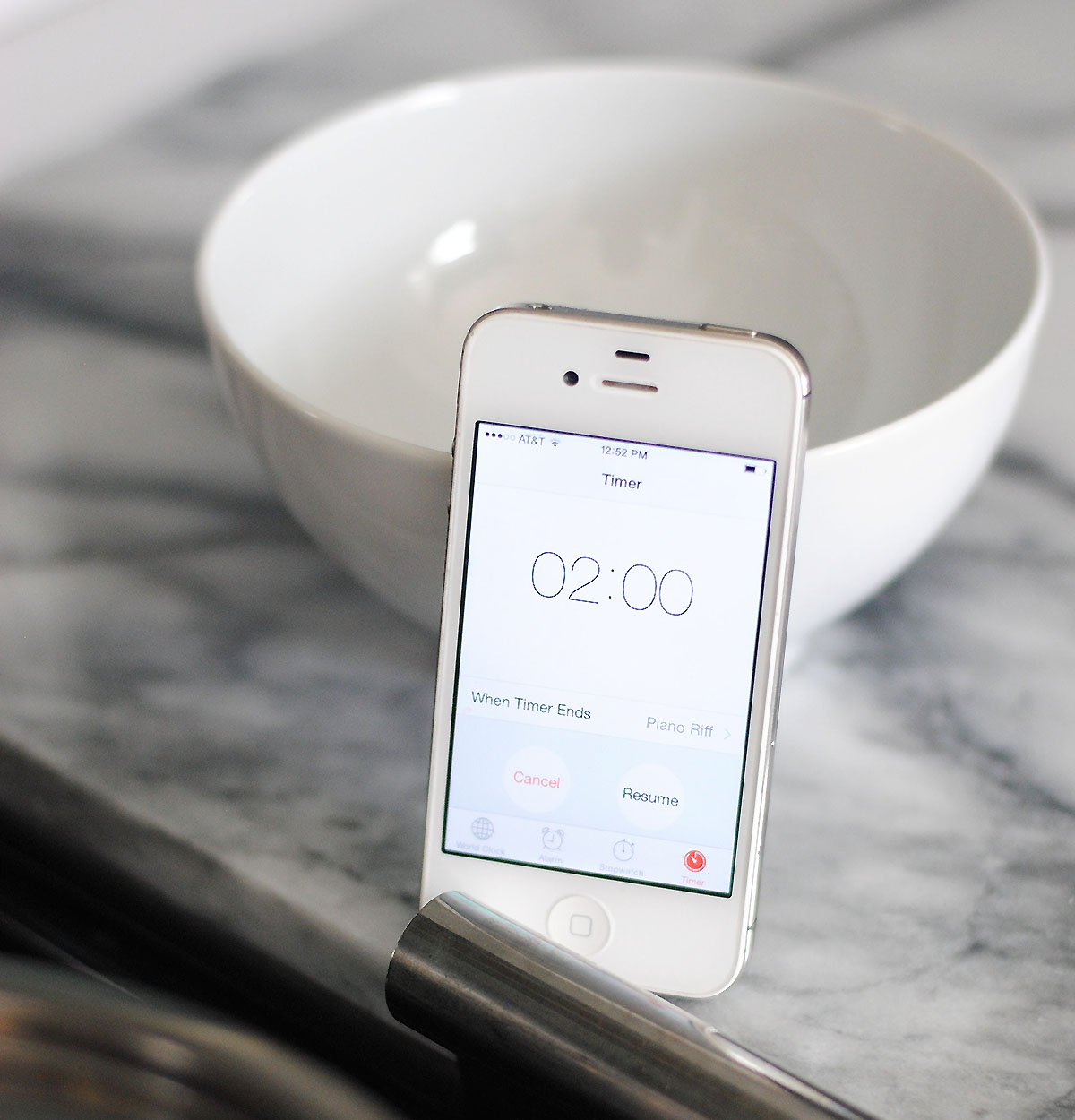
Next, drain the water a second time. While keeping the eggs in the pan, hold the lid on tight with both hands and gently shake eggs back and forth to crack the shells against each other. Do this gently, so you don’t bust open your eggs. If you prefer, take one egg out at a time and crack it on the counter once or twice.
Now, open the lid and peel the eggs. If needed, run the egg underwater as you work to release shell pieces and clean the egg whites.
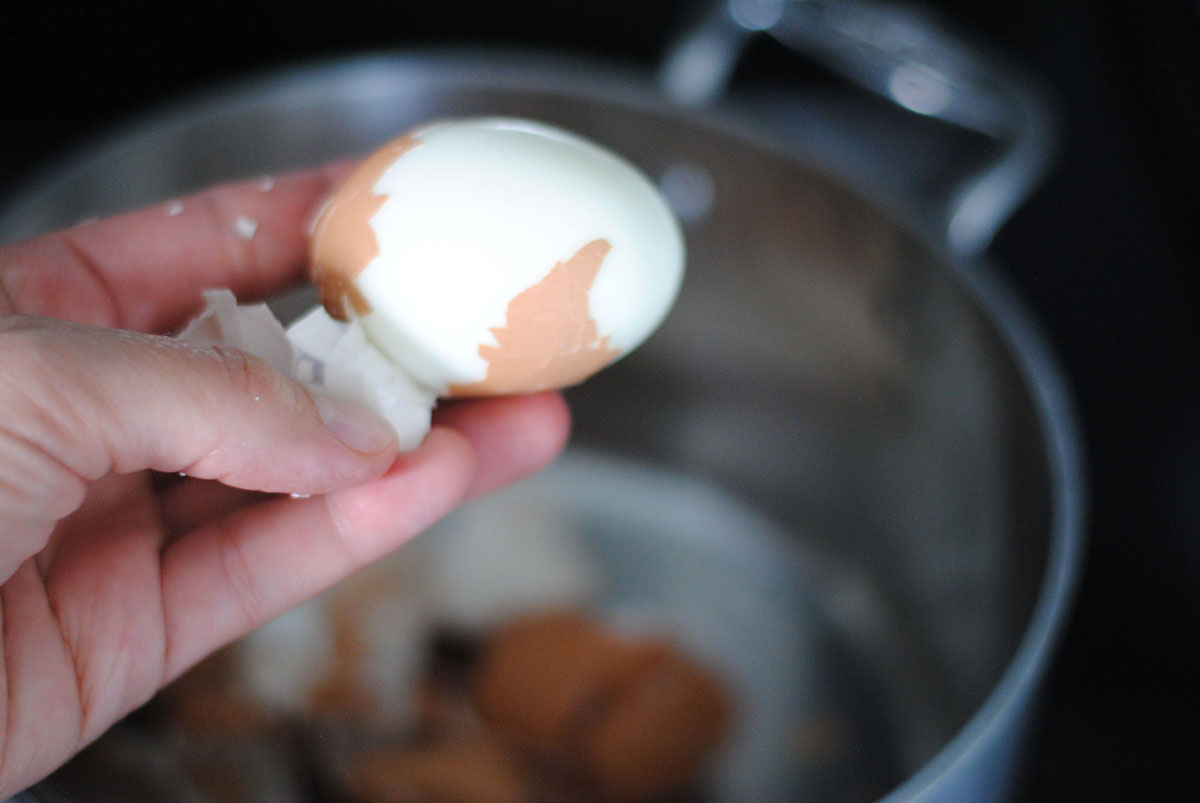
As a result, the shells should slip off pretty easily. Every so often, they don’t but take your time, crack a bit more, rinse under water again, and keep peeling bit by bit, seeking to get the membrane layer off with the shell.
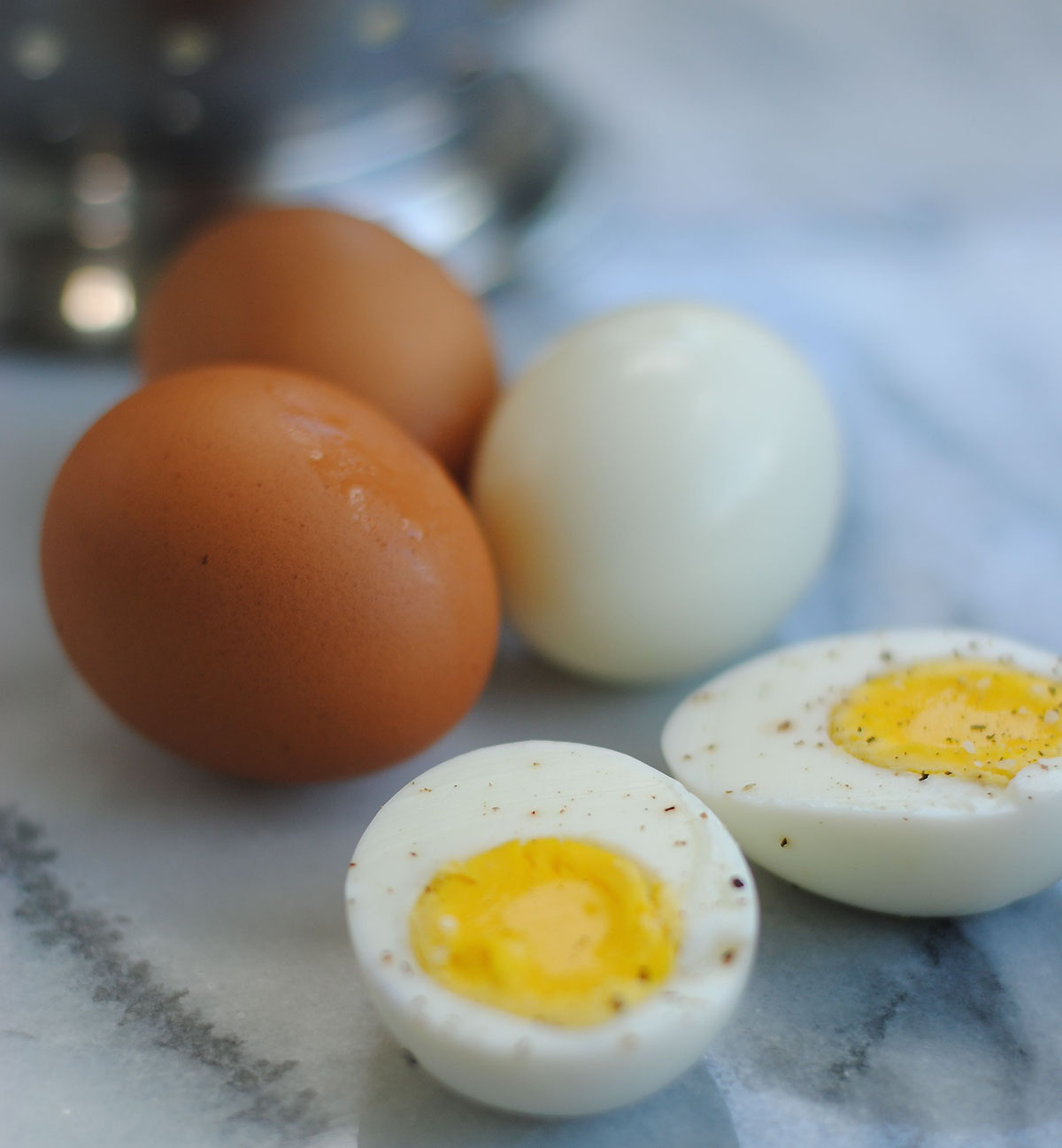
Lastly, rinse eggs and let them drip dry in a colander. Store eggs in an airtight container like a mason jar with lid. Unlesss you decide to eat them warm. If so, mash your warm eggs with butter, salt, and pepper for a delicious throwback to the 80s breakfast. In this case, add a slice of buttered toast, maybe even mashed or sliced avocados, and a side of fruit. What’s not to love?
Hard-boiled Eggs: Frequently Asked Questions
I haven’t found this to be 100% true, but the Vital Farms eggs I buy most often are brown. The additional trick I’ve found for best peeling is to not use your freshest eggs. I like to hard-boil eggs I’ve had in my fridge for at least a week.
I love a jammy soft-boiled egg on toast or salads. Do everything the same, except once water is boiling, covered, and taken off the heat, set the timer for 6-7 minutes instead of 14. Once you’ve tried it, you can adjust your timing up or down for more jammy or hard yolks, according to your preference.
Keep hard-boiled eggs in your fridge for up to one week! If peeled, keep them in a tightly covered container.
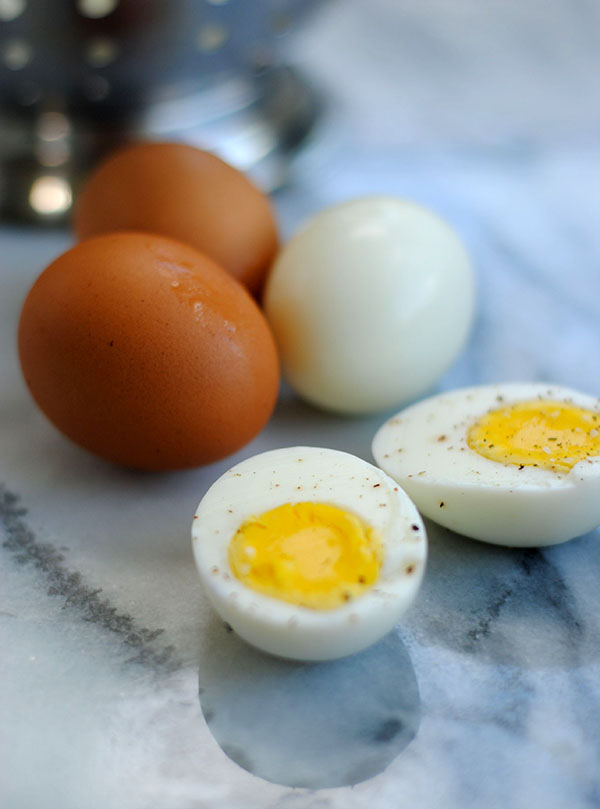
Ingredients
- 1 dozen eggs
Instructions
- Place eggs in the pan. Pour cold water over eggs, just until covered.
- Turn the heat on high and bring to a boil.
- As soon as the water starts to boil, cover the pan, turn off the heat, but leave the pan of eggs on the burner. Set your timer for 14 minutes.
- Drain the water and recover cooked eggs with cold water. Set your timer for 2 minutes.
- Drain the water a second time. Holding the lid on the pan with both hands, gently shake eggs back and forth for about 10 seconds to crack all the shells against each other. Do this gently so you don’t bust open all your hard-boiled eggs.
- Peel the eggs. The shells should slip off pretty easily. If not, take your time, crack them some more on the counter, rinse under water, and keep peeling bit by bit.
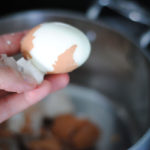
- Once peeled, rinse off any remaining shell bits, drain for a few minutes, so they aren't dripping with water, and store your hard-boiled eggs in a covered dish in the refrigerator.
Equipment
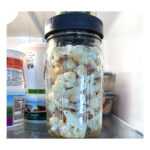
This post contains affiliate links to products I know and love. I recommend any of them for this recipe!
Nutrition
~Heather
Last Updated on July 18, 2022 by Heather Bursch

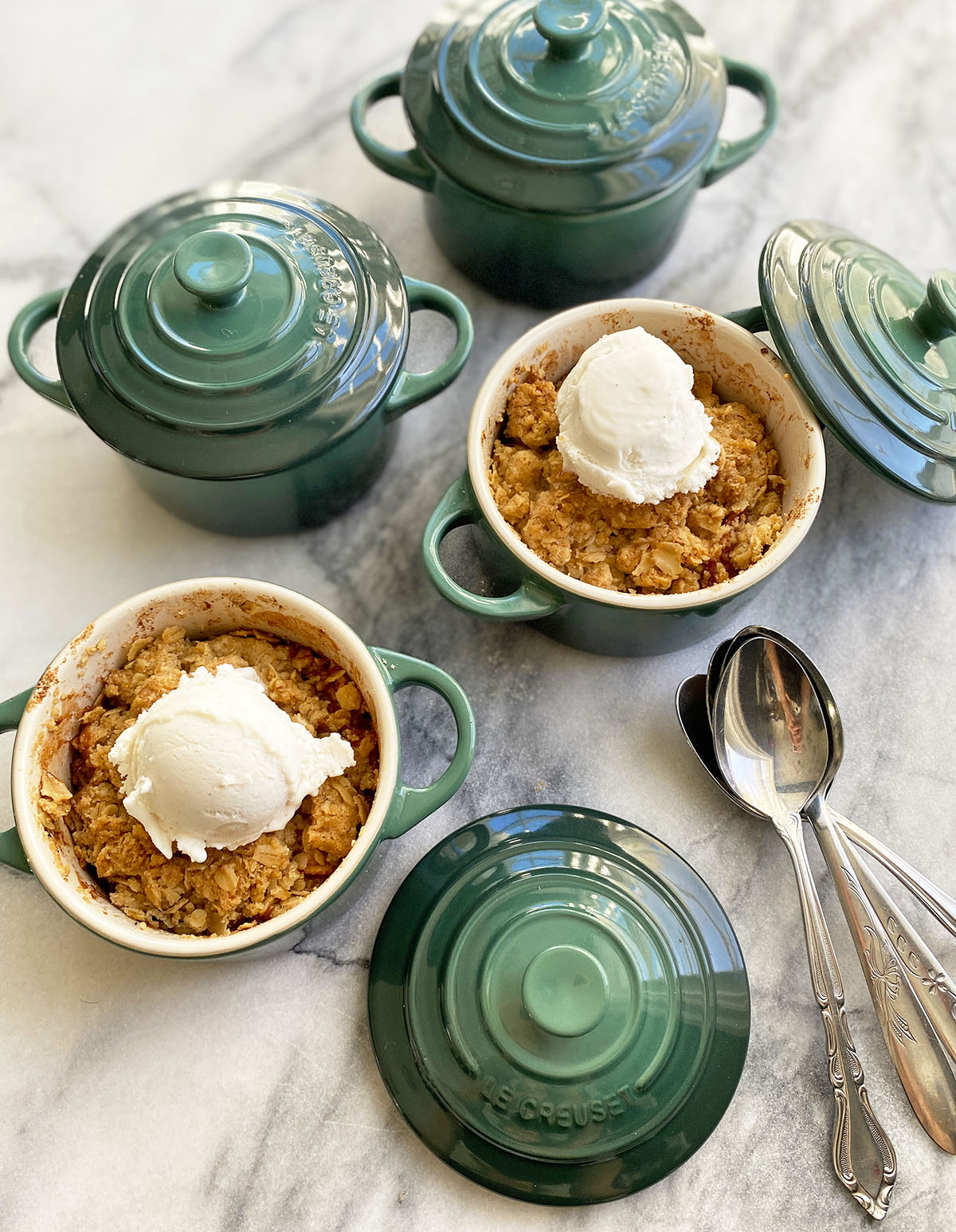
10 Comments